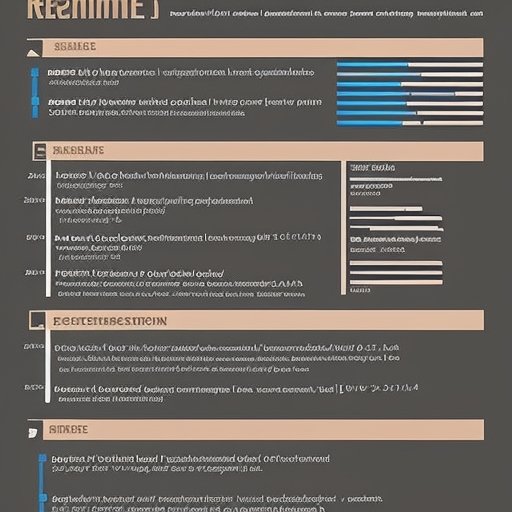IFRS Accounting implications of the Russian invasion of Ukraine
Since the Russian invasion of Ukraine, there has been much speculation about the possible accounting implications for companies with operations in the region. This blog post will examine some key issues and discuss how companies should proceed with their financial reporting. As always, please feel free to share your thoughts in the comments section below. Thanks for reading!
The economic landscape of the past 15 years has been nothing but a roller-coaster ride for companies. From financial crises and natural disasters to COVID -19, it's hard not to have an impact on your company balance sheet or income statement in some way!
The economic disruptions in Ukraine have caused a plethora of new accounting standards that companies will need to consider. From lost revenue due to the strengthening dollar, price changes for goods imported from Russia and sales downlines because some suppliers can no longer operate or transport cargo across borders - all these factors are worth considering from an accounting point of view.
We briefly discuss this critical accounting and how it impacts your financial statements.
● Asset impairments● Asset disposals and related exit or restructuring costs
● Fair value estimates
● Contract modifications
● Income taxes
● Loss contingencies
● Classification
The current environment is unique because of the difficulty in forecasting future cash flows and profitability.
IFRS Accounting implications of the Russian invasion
Although IFRS financial statements are grounded in historical cost, expectations of future cash flows are critical to the many judgments and estimates used to develop reported amounts. Thus, while the financial reporting topics are familiar, the underlying events may not be.
- The accounting consequences of Russia's invasion of Ukraine range from the obvious to the subtle.
- Companies that operate in Russia, Ukraine and Belarus are likely to encounter obvious accounting issues. These include writing off abandoned or destroyed assets; assessing inventory, long-lived assets, goodwill and investments in projects and joint ventures for impairment; and addressing the collectibility of receivables or loans from customers in those countries.
- The more subtle issues these companies might need to address include whether sanctions and government actions affect their ability to continue to control or exert significant influence on an investee or their expectations regarding the potential repatriation of earnings.
- Companies with no direct exposure to this geographic region may also find their business significantly affected as the war's effects ripple through the global economy, compounding existing supply chains, labour force, and reputational and inflationary concerns. Might the company need to repatriate earnings previously considered permanently reinvested in a foreign country?
Inventory writedowns.
A loss is recognized when there is evidence that costs cannot be recovered because of damage, physical deterioration, obsolescence or changes in price levels. Manufacturing companies may need to consider how a reduction in production might affect the amount of fixed overhead costs allocated to inventory. To the extent that production is abnormally low, IFRS requires that excess overhead costs be expensed in the period incurred.
Impairments of long-lived assets other than goodwill.
This is a complicated area that requires judgement, assumptions and knowledge of the accounting rules.
Tangible long-lived assets such as property, plant and equipment may be damaged, abandoned or impaired. Their useful lives or salvage values may be affected by changes in market conditions. Market conditions can also affect the useful lives and recoverability of long-lived intangible assets such as licenses, drilling, water or mineral rights, and customer lists.
IFRS identifies impairment indicators that require the company to perform impairment tests for these long-lived assets. Among those indicators are
(a) a significant adverse change in the business climate, and
(b) The asset is expected to be sold or disposed of shortly. Significantly before the end of its previously estimated useful life.
Impairment indicators for indefinite-lived intangible assets include legal and political factors and macroeconomic conditions that could affect significant inputs to the asset's fair value. Companies are legally obligated to reassess whether they can continue using the outdated method of assessing intangible assets.
Impairment tests need to be performed in a particular order if impairment indicators are present for assets that are held for use.
Indefinite-lived intangible assets are tested first, followed by groups of long-lived assets.
Exit or disposal costs.
Companies whose businesses are directly or indirectly affected by Russia's invasion of Ukraine may make strategic decisions that result in the sale or relocation of a line of business or a reorganization of the company's operations.
Liabilities for costs associated with exit-related activities are recorded at fair value when the liability is incurred. A restructuring or exit plan does not, in and of itself, give rise to liability. Instead, a liability is recognized when a transaction or event provides the company with little to no discretion to avoid settling the obligation.
For example, costs to relocate employees or production facilities are not recognized before they are incurred, even though they are incremental to regular operating expenses. Similarly, future operating losses are not recognized until they are incurred.
Discontinued operations.
Companies should distinguish between the sale or termination of a line of business that represents a discontinued operation and one that does not.
To qualify for discontinued operations treatment, the disposal (whether by sale or otherwise) must include a component (or group of elements) of the company whose disposition represents a strategic shift that will significantly affect the company's operations and financial results. A component of a company is one whose operations and cash flows can be distinguished (operationally and for financial reporting purposes) from the rest of the company.
If the portion of the company's operations to be disposed of qualifies for discontinued operations treatment, classification as a discontinued operation does not occur until the held-for-sale criteria are met. These criteria include several essential conditions, including that a sale is probable to occur within a year. In some fact patterns, discontinued operations classification will not be appropriate until the sale (or other disposal transaction) occurs.
Fair value estimates.
Under IFRS 13, the fair value represents the price received for an asset (or paid to transfer a liability) in an orderly transaction between market participants at the measurement date.
Several accounting topics require an estimate of fair value. Some important considerations to keep in mind when markets are in turmoil are the following:
● Orderly transactions vs distressed sales: A decline in market activity nor price volatility within a market necessarily leads to the conclusion that transactions in that market are not orderly. Fair value estimates are intended to represent the current fair value of an asset or liability at the measurement date. Imbalances of supply and demand or changes in the number of market participants do not necessarily indicate that current transactions do not involve willing, knowledgeable market participants.
● An Intent to sell: Whether the company would be willing to sell an asset at current prices is not relevant because fair value is not determined through the eyes of the seller, i.e., it is not an entity-specific measurement. As noted above, the objective of a reasonable value estimate is to determine the current price a company would obtain in an orderly transaction between market participants under the market conditions that exist at the measurement date.
● Valuation techniques: Market disruptions could result in a company concluding that it should use a different valuation technique. However, it would not be appropriate to use a method that relies on unobservable inputs (Level 3) when there are orderly transactions that provide relevant price information or other observable inputs (Level 2). Note that the rules require disclosure when a company changes its valuation approach or technique.
Income taxes
There are several income tax considerations that companies may need to address. Two of the more likely topics to arise, given the economic consequences of Russia's invasion of Ukraine, are
1) the realizability of deferred tax assets (including carryforwards) and
2) the assertion that foreign earnings are indefinitely reinvested.
Although companies with significant operations in eastern Europe are most likely to encounter these income tax issues, the ripple effects of global markets may make the realizability of deferred tax assets and the ability to assert that foreign earnings are indefinitely reinvested essential considerations for a wider audience.
Debt restructuring and classification
Some companies may encounter cash flow issues due to increasing costs or declining revenues. Others may face difficulties meeting loan covenants due to impairment or exit activities.
When debt terms are modified, companies should consider whether the amended arrangement represents
- a modification,
- extinguishment of the old debt and its replacement by the amended agreement, or
- a troubled debt restructuring.
The accounting models for each are different.
When a loan covenant has been violated or another default exists, companies should consider whether long-term classification remains appropriate.
Collectibility of trade receivables and loans.
Considerations related to trade receivables could present themselves in several ways. A customer may be unable to pay for goods or services that have already been delivered. There may be a change in the estimate of variable consideration under an existing contract arising from concerns regarding collectibility. A revenue contract might be modified to allow for extended payment terms.
A customer's inability to pay due to credit problems is distinct from a price concession granted by the seller to incentivize payment and thus is accounted for as a bad debt outside of revenue. A change in the estimate of variable consideration that does not result from a modification of the terms of the revenue contract would generally be recognized via a cumulative catch-up adjustment to revenue in the period the change in estimate occurs.
Extended payment terms may indicate that the agreement includes a significant financing component, potentially affecting the transaction price for the time value of money.
Loss contingencies.
A loss contingency is an existing condition, situation or set of circum- stances involving uncertainty as to possible loss that will ultimately be resolved when one or more future events occur or fail to occur when it is probable that a loss has been incurred. The loss can be reasonably estimated, and the loss contingency is recognized.
While many companies may not encounter loss contingencies directly from the Russia- Ukraine war, the downstream global disruption and instability could create situations where one or more loss contingencies arise. Note that future operating losses do not meet the definition of a loss contingency or expected losses on firmly committed executory contracts.
Going concern.
In preparing the financial statements, management must consider whether some conditions or events raise substantial doubt about the company's ability to continue as a going concern within one year after the balance sheet date.
Disclosures
Each of the accounting topics described above contains specific disclosure requirements. In general, those disclosures call for information about the accounting policies and methodologies that apply to the topic; descriptions of the events or transactions that are the subject of that accounting topic; and information about critical assumptions and inputs that underlie significant estimates and judgements used to measure the transactions or events.
Closing comments
Given the current instability in Ukraine, companies with operations in the region face several difficult decisions regarding their financial reporting. In this blog post, we have examined some key issues to examine for the IFRS Accounting implications of the Russian invasion and offered guidance on how companies should proceed. We hope that this information will be helpful for those making these difficult decisions.
If you are keen on learning IFRS or getting a qualification from either AICPA or ACCA, feel free to reach out to us.
From the blog
View allOther popular blogs
Follow these links to help you prepare for the ACCA exams
Follow these blogs to stay updated on IFRS
Use these formats for day to day operations
- Account closure format
- Insurance claim letter format
- Transfer certification application format
- Resignation acceptance letter format
- School leaving certificate format
- Letter of experience insurance
- Insurance cancellation letter format
- format for Thank you email after an interview
- application for teaching job
- ACCA PER examples
- Leave application for office
- Marketing manager cover letter
- Nursing job cover letter
- Leave letter to class teacher
- leave letter in hindi for fever
- Leave letter for stomach pain
- Leave application in hindi
- Relieving letter format
Link for blogs for various interview questions with answers
- Strategic interview questions
- Accounts payable interview questions
- IFRS interview questions
- CA Articleship interview questions
- AML and KYC interview questions
- Accounts receivable interview questions
- GST interview questions
- ESG Interview questions
- IFRS 17 interview questions
- Concentric Advisors interview questions
- Questions to ask at the end of an interview
- Business Analyst interview questions
- Interview outfits for women
- Why should we hire you question
Popular blogs
Leave application format
Crafting the perfect leave application for any scenario, from personal emergencies to medical leaves, often presents a challenge. To simplify this task, we've assembled an extensive index of leave application formats designed for various circumstances. Our collection is aimed at enhancing the clarity and professionalism of your leave requests. Dive into our index to discover the template that aligns with your specific needs, facilitating a smoother leave application journey.
List of Leave application formats
- Leave application for office
- Leave application for school
- Leave application for sick leave
- Leave application for marriage
- leave application for personal reasons
- Maternity leave application
- Leave application for sister marriage
- Casual leave application
- Leave application for 2 days
- Leave application for urgent work
- Application for sick leave to school
- One day leave application
- Half day leave application
- Leave application for fever
- Privilege leave
- Leave letter to school due to stomach pain
- How to write leave letter










Leave a comment